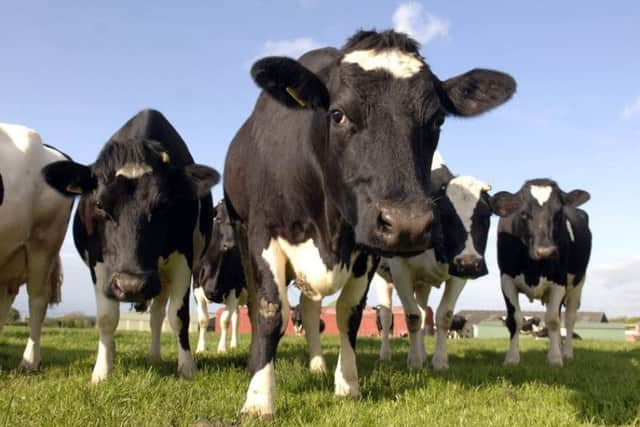Brexit: Scotland-UK trade war looms over livestock exports
Environment Secretary Michael Gove is believed to be preparing to announce a ban on all live exports of animals for slaughter after the UK leaves the European Union, in a move that would hit Scottish hill farmers.
Holyrood Rural Economy Secretary Fergus Ewing said a ban would do “substantial harm” to Scottish farmers and warned the Scottish Government would not take part in any UK-wide framework on agriculture that prevented live animal exports.


Advertisement
Hide AdAdvertisement
Hide AdTalks between Edinburgh and London are already bogged down over how to share control of some of the 111 powers in devolved areas. Agriculture is one of the areas under debate, with UK ministers seeking to avoid different animal welfare standards creating a trade barrier at the Scottish border, putting deals with the EU and other countries at risk.
Up to 40,000 sheep are exported from the UK each year, with 6,000 destined for abattoirs in France and Germany. Government sources were quoted at the weekend as saying that a live export ban is “something we want to get moving on”, with plans expected in the autumn.
A spokesman for Mr Gove’s department said it was “considering all options”.


Animal welfare charities have long campaigned for a ban on live animal exports, arguing that abattoirs elsewhere in the EU do not meet UK standards, and animals suffer during long journeys.
A private members’ bill that would ban all live animal exports except those born in Northern Ireland being sent to the Republic is being promoted by Conservative MP Theresa Villiers, and has the support of more than 50 MPs.
However, last year trade body Quality Meat Scotland warned that live exports were “fundamental to the long-term sustainability of the Scottish red meat industry”.
One-third of the roughly 3.2 million lambs reared in Scotland each year are exported to the rest of the UK or to the EU, either for slaughter or breeding. Exports of live animals were estimated to be worth £51 million to the Scottish economy in 2015.
Mr Ewing said: “The UK government appear to be ready to ban all live exports of livestock. So let me be absolutely clear: this is one UK-wide framework the Scottish Government will not be participating in.
Advertisement
Hide AdAdvertisement
Hide Ad“I will not support anything that creates further challenges or difficulty for our farming sector or puts Scottish agriculture at a disadvantage. Any such move would potentially do substantial harm to our quality livestock sector, not least farming in the Western Isles, Shetland and Orkney, as well as trade with Northern Ireland.
“The Scottish Government will therefore not support the banning of live exports of livestock, but will remain committed to the welfare of all animals during transport adhering to the current rigorous standards which apply – standards and regulations provided by the EU, that are already world class … enabling our produce to be traded around the world.”
In September, the former Cabinet minister Damian Green warned of a possible trade war between England and Scotland, claiming that joint control of agriculture was needed to prevent Holyrood ministers giving an unfair advantage to Scottish sheep farmers.
